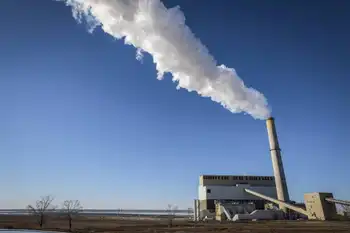$9 million carrot for future nuclear science students
By Electricity Forum
NFPA 70e Training - Arc Flash
Our customized live online or in‑person group training can be delivered to your staff at your location.

- Live Online
- 6 hours Instructor-led
- Group Training Available
Under the Nuclear Energy Universities Program, the Department of Energy will provide $2.9 million in scholarships and fellowships to 86 U.S. nuclear science and engineering (NS&E) students, and will offer more than $6 million in grants to 29 U.S. universities and colleges in 23 states.
The Nuclear Energy University Program (NEUP) supports the countryÂ’s nuclear energy research infrastructure at schools across the country, while attracting high-quality undergraduate and graduate students into nuclear science and engineering disciplines.
Infrastructure investments designed to enhance collegesÂ’ nuclear energy research and development (R&D) capacity will include grants for new equipment and instrumentation for research reactors, specialized nuclear energy facilities, and classrooms and laboratories.
“America’s leadership in nuclear energy research will be critical in addressing the country’s long term energy independence and climate change goals. We need to ensure that the next generation of nuclear scientists and engineers have the training they need to research, design, build, operate, and maintain U.S. nuclear power plants,” said Secretary Steven Chu.
“Investing in these students’ educations and the necessary infrastructure and equipment at their universities will help keep the United States at the research forefront for this important zero-carbon energy source.”
According to the Nuclear Energy Institute, about half of the nuclear industryÂ’s workforce will be eligible to retire during the next 10 years. The scholarships and fellowships under the NEUP program will help make sure we are training nuclear scientists and engineers to replace these workers and maintain AmericaÂ’s role as a leader in the nuclear energy research.
The NS&E infrastructure awards will support university and college efforts to build or expand the schoolÂ’s NS&E basic research or education capabilities and enhance the university or college's capacity to perform R&D that helps meet the DepartmentÂ’s long-term energy consumption goals.
The Department is awarding 70 scholarships to U.S. undergraduate students and 16 fellowships to U.S. graduate students. Each scholarship student will receive $5,000 to provide cost of his or her education for the next year. Fellowship recipients will receive $50,000 a year over three years to help pay for their graduate studies and research. Students are expected to receive their award funds by September 30.
Four-year and two-year accredited universities or colleges including community colleges and trade schools were eligible to apply for an infrastructure grant. Award amounts for each project are subject to negotiation but range between about $100,000 and $300,000. Awards are limited to one per university or college and are expected to be completed by September 30.











